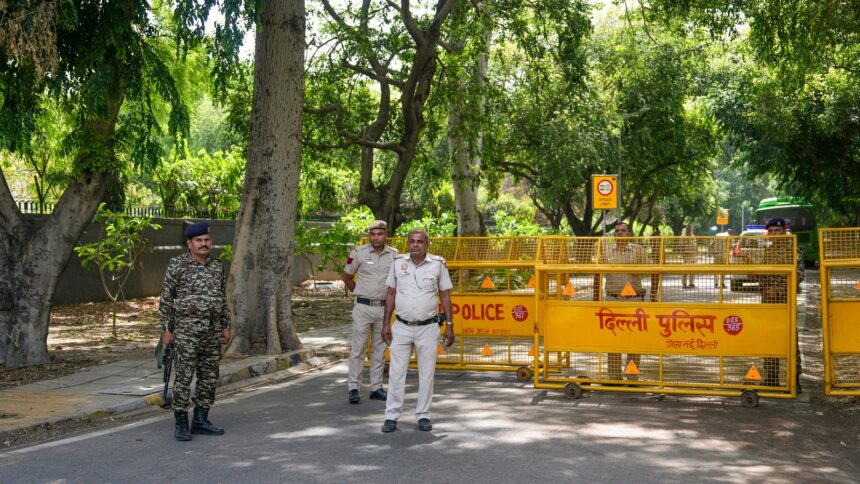Following India’s in Pakistan and Pakistan occupied Kashmir on the intervening night of May and May 7, and the subsequent that ensued between the two countries, social media became a battleground of information warfare. Fake information, deepfake visuals and footage from video games run amok on platforms like X and Instagram.
In response, a small team at the Ministry of Electronics and IT (MeitY), which was set up last year during the Lok Sabha polls to flag and takedown election-related misinformation on social media platforms, promptly received personnel reinforcement and was asked to step up monitoring and flagging misleading content related to the conflict to be taken down. The monitoring happened round the clock, with people working across shifts.
On May 9, two days after the military escalation between India and Pakistan, the IT Ministry expanded its election time content monitoring cell and converted it into a war room for Section 69(A) of the Information Technology Act, the legislation which allows the Central government to issue content blocking orders to social media companies, has learnt. The group, which included at least 19 people, including those possessing technical know-how across the ministry and the Indian Computer Emergency Response Team (Cert-In), had a clear mandate: to block Pakistani sponsored social media content under section 69A of IT Act.
The group flagged for takedown content and accounts spreading misleading information on the Internet – and tens of thousands of social media accounts were blocked in the process. Several websites were also blocked. The group received inputs from various central and state agencies as well, along with its own round-the-clock monitoring of social media.
In times of uncertainty, online disinformation campaigns often act as a strategic ploy to capture the narrative war. Such campaigns—which have become routine now on social media platforms that have been unable to curb the sheer number of misleading content on their sites—have been used in previous and ongoing conflicts as well, such as the Israeli strikes on Gaza, and Russia’s invasion of Ukraine.
During the military escalation between India and Pakistan, the government carried out a coordinated effort to tackle misleading information online, even as many questioned the clamour that was spreading particularly on Indian news channels. The Press Information Bureau’s (PIB’s) fact check unit has fact checked several viral claims related to the airstrikes which were being made online. One such post contained a letter written by a scientist at DRDO about an alleged failure in BrahMos missile components. The fact check unit clarified that no such scientist works at DRDO and the letter is fake. Several old visuals showing a crashed aircraft were also circulating online with the claim that Pakistan recently shot down an Indian Rafale jet near Bahawalpur during the ongoing, which the PIB unit has deemed to be fake.
Some accounts, however, were caught in the crossfire. It is worth noting that all the blocking action was not necessarily targeted at Pakistan-based sources, but some international media and Indian media were also temporarily blocked online. For instance, BBC Urdu and Outlook India’s X handles were blocked but were later restored.
“When one is carrying out a clean-up exercise at such a large scale, some errors can happen. We quickly restored some accounts that were inadvertently blocked,” a senior government official said.
Last week, Elon-Musk owned X also said it received executive orders from the Indian government requiring the company to block over 8,000 accounts in India, including those belonging to “international news organisations and prominent X users”. The company said that falling foul of the executive orders could subject the company to potential penalties including significant fines and imprisonment of its local employees.
X’s statement offered a rare view into the expanse of the online blocking being carried out by the Indian government to ward off misinformation post the Pahalgam terror attack last month, and the following military escalation between India and Pakistan. It is worth noting that X’s government affairs handle which posted about the blocking orders was also later blocked in India for a brief period before being restored.








